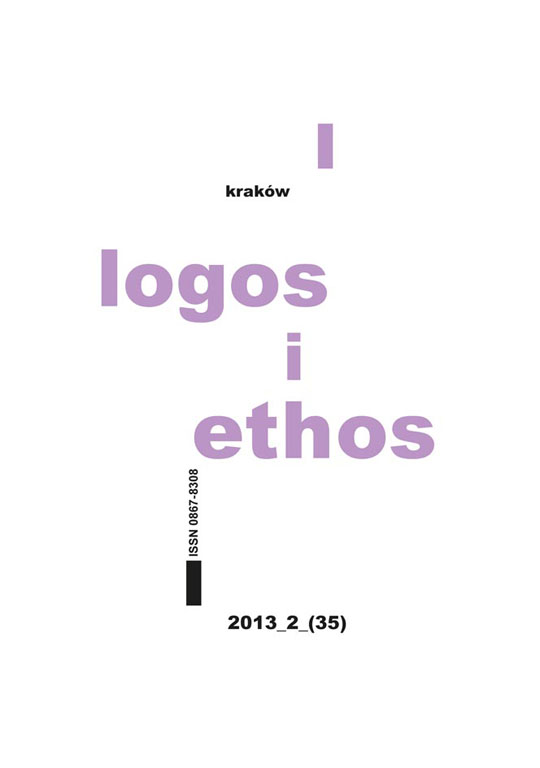O nacjonalizmie w filozofii
DOI:
https://doi.org/10.15633/lie.163Słowa kluczowe:
Vladimir F. Ern, nationalism, ratio, Logos, Russian philosophy, the WestAbstrakt
The article is a translation into Polish Semyon L. Frank’s review of Vladimir F. Ern’s famous work entitled A few words about Logos, the Russian philosophy and scientific spirit. Because of the new philosophical journal „Logos”. The author of this review regards Ern’s article as a eulogy of Russian philosophical thought. Ern rejects the whole “modern Western philosophical awareness.” It is – as he claims – imbued with the principle of ratio, hostile to the idea of Logos, expressed in Russian philosophy and the Orthodox Church. First and foremost, Frank accuses Ern of a vague outline of the concept of ratio. According to the author of the review, the principle of ratio is a fundamental feature of the concept of philosophy as such, and the history of ancient philosophy is the history of the origin of rational science. He stresses that Ern blurs the difference that exists between philosophy and religion and Ern’s hidden thought is the belief that religion better replaces philosophy. According to him, Ern is a conceited and blind nationalist who lacks a proper perspective on the assessment of his native philosophy and, at the same time, he impertinently tramples on the eternal values of European thought. Ultimately Frank supports the development of philosophical culture in Russia not writing off the meaning of the relations of thought with Western heritage.
Pobrania
Opublikowane
Numer
Dział
Licencja
Prawa autorskie (c) 2013 Siemion L. Frank, Barbara Czardybon

Utwór dostępny jest na licencji Creative Commons Uznanie autorstwa 4.0 Międzynarodowe.
Autorzy publikujący w czasopiśmie udzielają jego wydawcy zgody o następującej treści:
- Autor zachowuje autorskie prawa majątkowe do utworu, a jednocześnie udziela wydawcy czasopisma zgody na jego pierwszą publikację w wersji drukowanej i wersji online na licencji Creative Commons Uznanie autorstwa 4.0 Międzynarodowe oraz zgody na wykonywanie opracowań, w tym przekładów.
- Autor ma możliwość udzielania zgody niewyłącznej na opublikowanie utworu w wersji, która ukazała się w czasopiśmie (np. zamieszczenia go w repozytorium instytucjonalnym lub opublikowania w książce), wraz z informacją o jego pierwszej publikacji w czasopiśmie.
- Autor może umieścić swój utwór online (np. w repozytorium instytucjonalnym lub na swojej stronie internetowej) jeszcze przed zgłoszeniem utworu do czasopisma.

